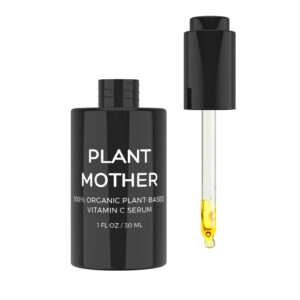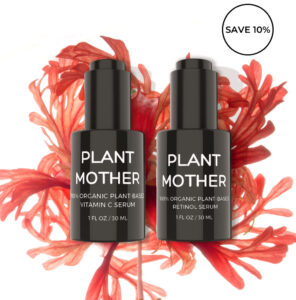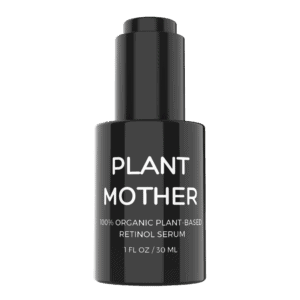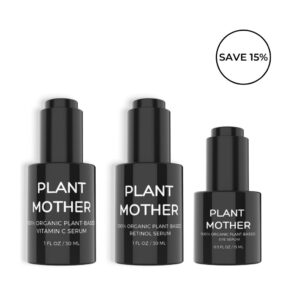What Is Encapsulated Retinol and Is It The Better Choice For Your Skin?

You may have heard the phrase “encapsulated retinol” lately. This version of retinol is being touted as the better choice. But is it? We’ve collected the best information available so you can make an informed decision about your skincare products. Check out what we found!
WHAT IS ENCAPSULATED RETINOL?
You may have already guessed what encapsulated retinol is from its terminology alone. If you deduced that encapsulated retinol is retinol that’s been encapsulated, you’d be right! But why encapsulate retinol at all? Doesn’t it work fine without any barrier?
Traditional (prescription) retinol has no barrier and its conversion to retinoic acid occurs relatively quickly. This retinoic acid, or Vitamin A, works within the body to stimulate collagen production, encourage cell turnover, smoothen wrinkles, and more. However, this retinol is infamous for its common side effects like dryness and irritated skin. It can take a frustrating amount of time for your skin to adjust to the product.
Additionally, prescription retinol has a reputation for being unstable. When retinol destabilizes, it becomes much less effective and can even cause side effects that worsen its benefits. A destabilized retinol also has a shorter shelf-life. Common retinol destabilizers are oxygen, heat, or light. In fact, that is one of the reasons that retinol is a nighttime routine product.
At night, retinol can be applied without any detrimental exposure to sunlight. The most important reason, however, is that retinol can cause sun sensitivity, or make you more likely to burn in the sunlight. Using retinol at night when the sun isn’t out is better, although it is still incredibly important to wear and reapply sunscreen during the day.
Main benefits of encapsulated retinol
Encapsulated retinol drastically reduces the two biggest problems with retinol—instability and irritation. With a protective layer in place, you can worry less about exposure to environmental factors. The encapsulated retinol is commonly referred to as a time-release product, with the retinol being released into the body more gradually and at a deeper level.
This alternative can significantly reduce the common side effects associated with traditional retinol. Unfortunately, it’s a bit too good at bypassing the skin’s surface. Some recommend using a combo approach, with a product that uses both encapsulated and traditional retinol together to effect change at both the deep and superficial layers of the skin.
Instead, you can (and should) switch to vegan retinol that has been formulated to have all the benefits of encapsulated retinol – stable, effective, without skin irritation.
UNDERSTANDING RETINOL
We went over a lot of the downsides of retinol, but there’s a reason many people still swear by it. Retinol can be extremely effective at anti-aging and improving overall skin appearance. The product typically works at a cellular level. It also promotes collagen, an important component that our bodies start to make less of as we age. As the collagen breaks down, fine lines and eventually wrinkles appear. By stimulating collagen production, retinol helps to reduce visible signs of aging.
Choosing a vegan retinol has many benefits. Plant Mother’s vegan retinol serum is 100% organic and all-natural with a distinctive stable formula. Like encapsulated retinol, Plant Mother’s vegan retinol works effectively without causing common negative side effects such as peeling, sun sensitivity, irritation, redness, and dryness.
Synthetic retinols often contain harsh chemicals, whereas Plant Mother uses gentle and natural ingredients only. Our impressive ingredient profile includes natural powerhouse Bakuchiol and over 20 anti-aging plants. Bakuchiol is such an effective anti-aging agent that it earned the nickname “botanical facelift.”
SHOP VEGAN RETINOL BEST SELLERS:
SIDE EFFECTS OF ENCAPSULATED RETINOL
Don’t couple the retinol with BHAs, AHAs, or Vitamin C. That’s not to say you can’t use these products too, just not at the same time. You’ll want to use acids or Vitamin C (ideally plant-based, natural Vitamin C serum) in the morning, and retinol at night, or simply alternate days.
There’s a bit of trial and error involved when you’re building or adding to your skincare routine. Remember to introduce any new product, but especially retinol, slowly. That means a small amount, once or twice a week to start. If you have a skin condition or particularly sensitive skin, you may want to reach out to your dermatologist before starting a new product.
Also be aware of tretinoin purge and other harsh skin reactions that you may encounter as a retinol beginner if you don’t choose plant-based retinol alternatives.
How To Introduce New Retinol Product Into Your Skincare Routine
If you experience serious side effects like severe discomfort, excessive itching or tenderness, or any pain, stop the new product immediately and get help from a medical professional. Professionals do not recommend using prescription retinol products if you are pregnant or nursing.
If you’re apprehensive about starting a new skincare product, you can always try a patch test first. Choose a small area of skin and apply a tiny amount to the area first and observe for adverse reactions. It can be exciting to envision a new skincare combination and start slathering on the revised routine.
However, it’s always best to start with one new product at a time. Or you can use active ingredients every other day – a process known as skin cycling. If you start multiple skincare products at the same time and experience a negative reaction, you won’t know which product is the culprit.
IS ENCAPSULATED RETINOL BETTER THAN TYPICAL RETINOL?
All signs point towards encapsulated retinol being the victor. Annoying side effects are reduced, stability and shelf-life are improved… Actually, it may work better than prescription retinol at improving your skin, given its unique ability to penetrate deeply.
In many respects, it is very similar to vegan retinol that can be superior than regular synthetic retinol (check Plant Mother’s vegan Retinol). Encapsulated retinol isn’t more potent than traditional retinol, but its time-release property enables it to reach further and more easily access the necessary cells. And on top of that, it doesn’t lose its potency as easily as typical retinol. Once retinol is destabilized, it loses potency and can become even more irritating to the skin. A more stable form of retinol like encapsulated retinol must be best then, right?
Well, there’s no conclusive answer to this question. What works best for one individual’s skin won’t necessarily work best for another’s. If you need a retinol that primarily tackles the superficial layers of skin, you may opt for a combination retinol product or a traditional retinol. However, if you have dry, mature, or sensitive skin, you might decide on vegan retinol that cause less irritation.

WHAT ELSE SHOULD I USE FOR MY SKIN?
Washing and cleansing your face regularly will help prevent excess oil, dirt, and other skin pollutants from building up and causing clogged pores. Cleansers and toners are more optional than strictly necessary, but you should always do what works best for your routine and skin. Always do your research and check the ingredients list for potential red flags. You may have heard or read somewhere that natural means ineffective, but this is simply untrue. There are so many natural, gentle, effective products out there – do your research!
Vitamin c And Retinol - You Need to use both!
And for your morning routine, we recommend adding Plant Mother’s organic plant-based Vitamin C serum. This Vitamin C serum brightens and rejuvenates your skin. 100% non-toxic and chemical-free, this serum owes its efficacy to an incredible ensemble of antioxidants and vegan ingredients. One of the all-star ingredients of our Vitamin C face serum is the Kakadu plum. The Kakadu plum boasts the highest amount of Vitamin C of any plant in the world—it contains 55 times more Vitamin C than oranges!
What’s more, Plant Mother’s Vitamin C serum is waterless, packed with nutrients, antioxidants, and vitamins. When you buy other Vitamin C products, you’re usually buying something that is over 80% water and chemicals. We want you to feel confident in your purchase and know that you are buying something well worth the price tag.
MEDICAL DISCLAIMER
This content is for informational and educational purposes only. It is not intended to provide medical advice or to take the place of such advice or treatment from a personal physician. All readers of this content are advised to consult their doctors or qualified health professionals regarding specific health questions. The publisher of this content does not take responsibility for possible health consequences of any person or persons reading or following the information in this educational content. All viewers of this content, especially those taking prescription or over-the-counter medications, should consult their physicians before beginning any nutrition, supplement, skincare product, or lifestyle program.




